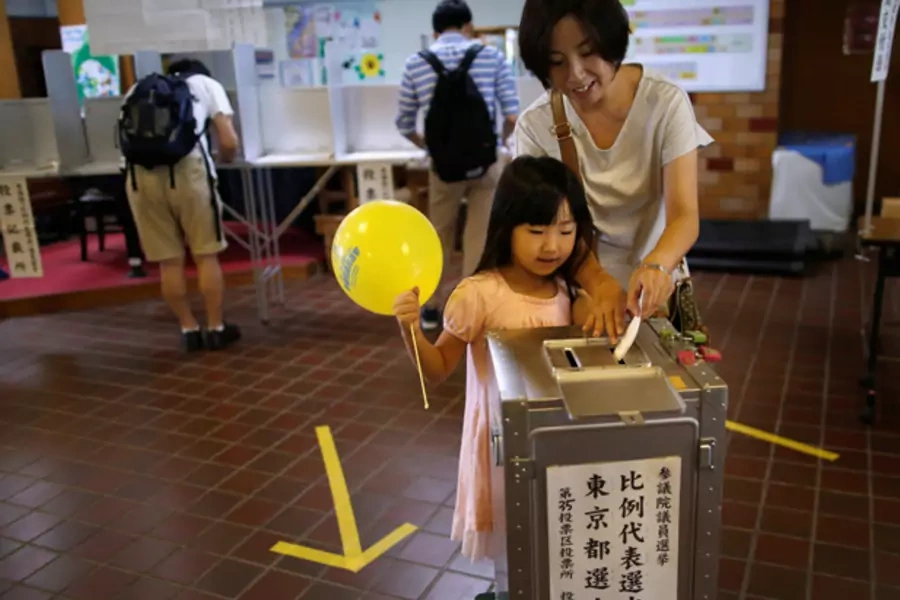Japanese Public Opinion on Constitutional Revision

This blog post is part of a series entitled Will the Japanese Change Their Constitution?, in which leading experts discuss the prospects for revising Japan’s postwar constitution.
Last week, four Japanese legislators presented their thoughts on the prospects for revising Japan’s constitution. While the Liberal Democratic Party (LDP) has long advocated for the debate, its coalition partner, the Komeito, is cautious, and there is significant pushback from opposition parties, including the largest, the Democratic Party.
More on:
But far less is known about how the Japanese public feels about revising their postwar constitution. Since a national referendum would call upon Japan’s citizens to approve—or reject—proposals by their parliament, we took a look at polling data to see what the Japanese people think about the 1947 Constitution and about the idea of revising it.
Contrary to what many outside Japan believe, this is not a new topic. In fact, in the early postwar years, as Japanese leaders shook off the remnants of seven long years of occupation, some Japanese thought the constitution needed to be rewritten. Japan’s citizens were just as divided then as they are today over the legitimacy of a document forged between the staff of the American occupation army and the Japanese legislators forced to negotiate with them. Two essays this week present analysis of the evolution of Japanese popular views on their postwar constitution in an effort to place this year’s election and upcoming Diet debate in context.
The first takes a look back at the years immediately after the occupation ended, when the conservative parties consolidated into the LDP, and began their long dominance over Japanese politics. Successive cabinets were concerned about how Japan’s citizens viewed this new document. The cabinet office polls from 1955-1968 regularly queried respondents on the constitution, and from the tone of the questions, government pollsters seemed to worry about whether the Japanese claimed this occupation document as their own. Article Nine too was a critical focal point of these polls, and interestingly, so too was question of whether it should be easier to revise (Article Ninety-six).
The Japan program staff also analyzed recent polling, done by Japan’s major media outlets, in an attempt to understand how attitudes on constitutional revision relate to the 2016 Upper House election. Polls taken this year in advance of the May 3rd, Constitution Memorial Day, reveal a public still divided on the question of constitutional revision. The Upper House election tipped the scale in favor of those who are for revision, and afterwards polling suggests a willingness by a majority of Japanese to entertain the debate, but no consensus on what revisions, if any, might be warranted.
Many assume Japan’s liberals are far less willing than conservatives to consider revision, but initial polls contradict this simple rendering of popular attitudes. Three sets of media polls identify how attitudes over time for readers of the liberal leaning Asahi Shimbun and the conservative leaning Yomiuri Shimbun, both of which have been surveying popular attitudes on constitutional revision for decades. We have also added more recent polling by the business-oriented Nikkei. A more careful look at why respondents feel the way they do—either for or against revision—gives some needed texture to the debate over how—if asked—the Japanese people might respond if their legislators present them with proposals for revision in a national referendum.
More on:
First in a three part series on Japanese public opinion on Constitutional revision.
 Online Store
Online Store